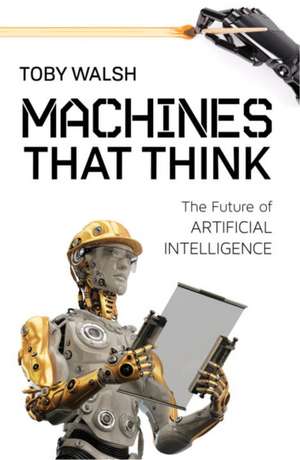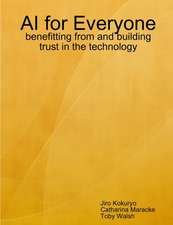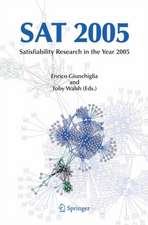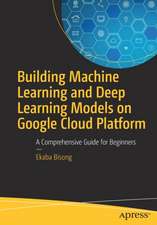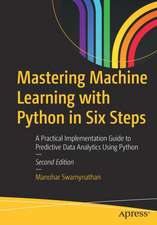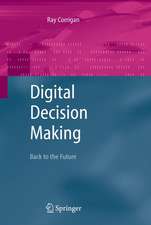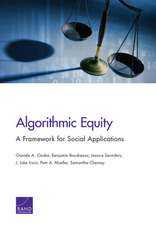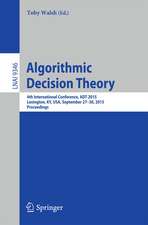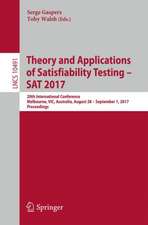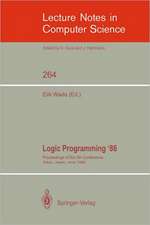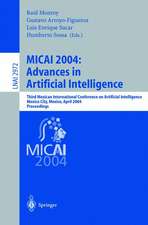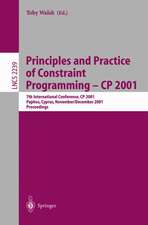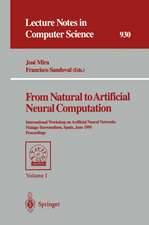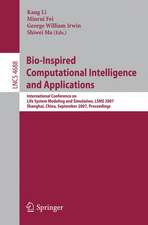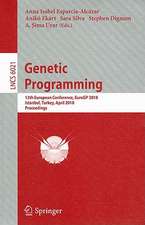Machines That Think
Autor Toby Walshen Limba Engleză Paperback – 19 feb 2018
- Will automation take away most of our jobs?
- Is a "technological singularity" near?
- What is the chance that robots will take over?
- How do we best prepare for this future? The author concludes that, if we plan well, AI could be our greatest legacy, the last invention human beings will ever need to make.
Preț: 84.91 lei
Preț vechi: 106.14 lei
-20% Nou
Puncte Express: 127
Preț estimativ în valută:
16.25€ • 16.90$ • 13.41£
16.25€ • 16.90$ • 13.41£
Carte disponibilă
Livrare economică 22 martie-05 aprilie
Preluare comenzi: 021 569.72.76
Specificații
ISBN-13: 9781633883758
ISBN-10: 1633883752
Pagini: 335
Dimensiuni: 154 x 227 x 23 mm
Greutate: 0.41 kg
Editura: Prometheus Books
ISBN-10: 1633883752
Pagini: 335
Dimensiuni: 154 x 227 x 23 mm
Greutate: 0.41 kg
Editura: Prometheus Books
Notă biografică
Toby Walsh is one of the world's leading experts in artificial intelligence (AI). Professor Walsh's research focuses on how computers can interact with humans to optimize decision-making for the common good. He is also a passionate advocate for limits to ensure AI is used to improve, not take, lives. In 2015, Professor Walsh was one of the people behind an open letter calling for a ban on autonomous weapons or "killer robots" that was signed by more than 3000 AI researchers and high-profile scientists, entrepreneurs, and intellectuals. He was subsequently invited by Human Rights Watch to talk at the United Nations in both New York and Geneva. Professor Walsh is a Fellow of the Australia Academy of Science and of the Association for the Advancement of Artificial Intelligence, and was recently awarded the 2016 NSW Premier's Prize for Excellence in Engineering and Information and Communications Technologies. Walsh has been interviewed several hundred times, appearing on NPR (US), BBC (UK), CCTV (China), CNN (US), RT (Russia), and in publications including the Guardian, New York Times, Washington Post, and New Scientist. He also regularly writes for outlets like American Scientist, New Scientist, and Conversation.
